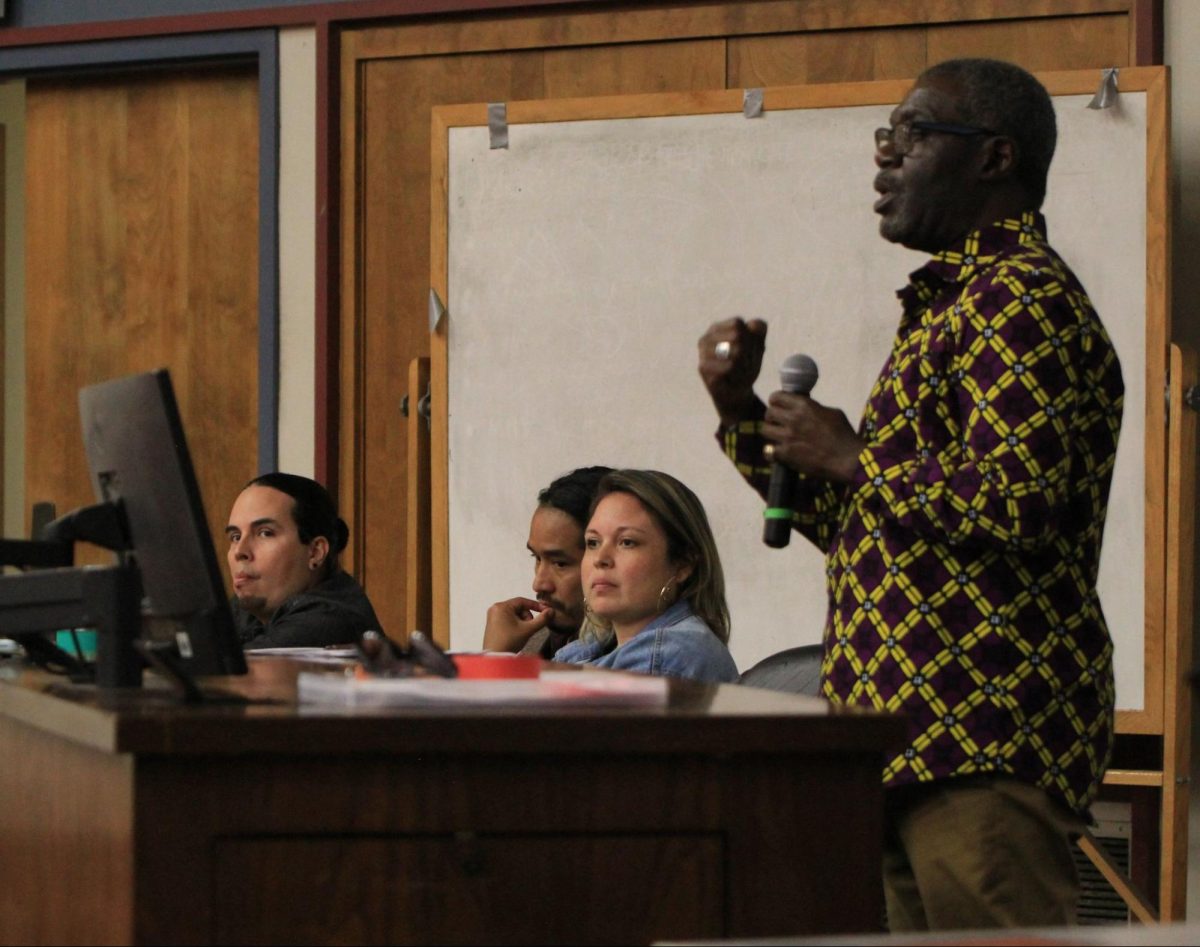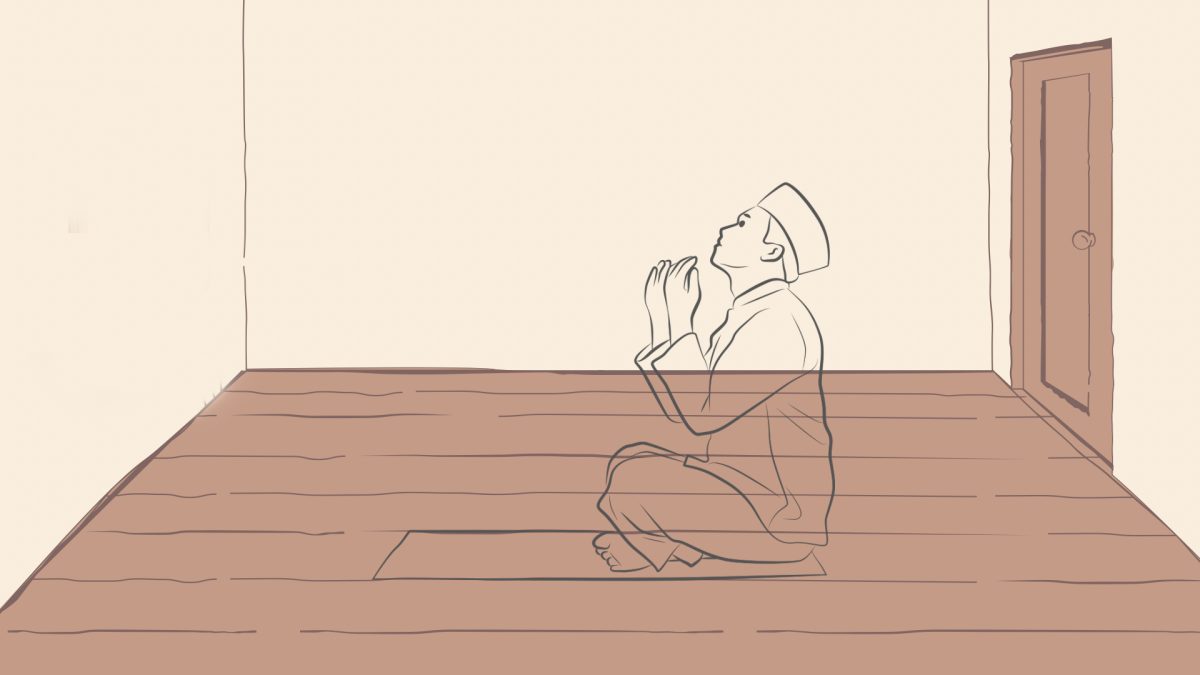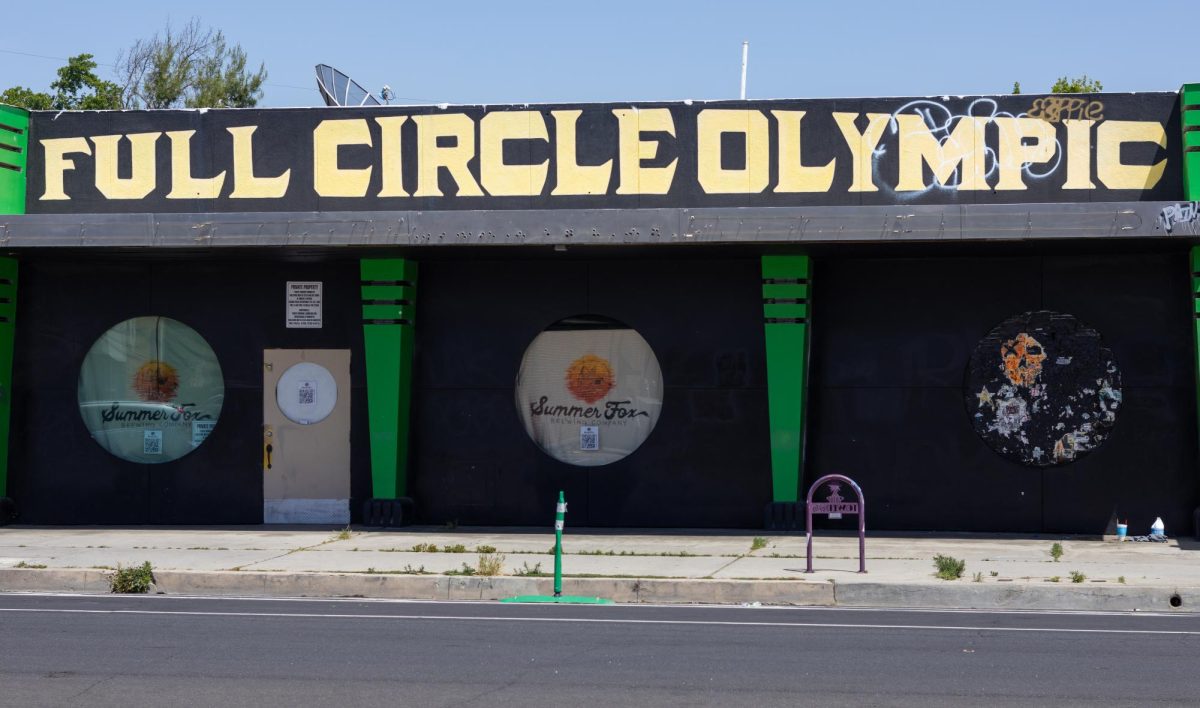Few Fresno State graduates were accepted into the University of Berkeley. in the 1990s but Matt Espinoza Watson was one of them.
He was only 20 years old when he finished his undergraduate studies at Fresno State and entered law school at the University of Berkeley but he quickly realized he didn’t want to be a lawyer. He dropped out briefly and returned to finish his degree in 2003. Two years later, Watson would quit his job at California Prison Focus in San Francisco and return to the Valley.
“When people return to Fresno, they talk about it like it’s a vortex that sucks them back in,” said Watson, “––but I was really drawn to coming back because of the artists and activists in the community.”
Upon his return, Watson met Dr. Carlos Perez, who was then the head of Chicano and Latino American Studies at Fresno State.
Perez offered Watson two classes to teach at Fresno State.
Despite having no teaching experience, Watson accepted the offer. In the same year, Perez introduced Watson to Art Amaro, Fresno City College Chicano Latino Studies professor. Amaro would offer Watson a chance to teach CLS classes at FCC, which he accepted.
Since then, Watson has been teaching at least three classes at FCC while simultaneously teaching two or three classes at Fresno State.
He describes his first year of teaching as terrifying and exciting. “I learned quickly that what I knew wasn’t as important as being able to communicate it. I had always been a shy kid. I needed to be comfortable in leading discussions,” said Watson.
When Art Amaro began teaching at FCC in the 1970s, there were a significant number of faculty members on campus that were hostile toward CLS.
Watson, however, felt completely welcomed and supported by the faculty and staff. However, he has found the hostility towards ethnic studies isn’t on campus as much as it is in academia in general.
“The arguments and attacks have changed as to why these programs shouldn’t exist. In the 1960s it was ‘what could they possibly have to study?’ The predominating theories of Mexican Americans were that they were a deficient population that had no significant history, heritage or culture,” said Watson. “There was the emphasis of the melting pot; why study something like culture that we can do away with through assimilation? Even speaking Spanish was a problem to be corrected.”
Now with Arizona’s House Bill 2281, Attorney General Tom Horne threatens Arizona’s state-funded schools with spending cuts if teachers use curriculum that “is designed for a particular ethnic group” or “advocates ethnic solidarity instead of the treatment of pupils as individuals.”
“The explicit argument has become that Chicano Studies are decisively un-American. That it’s a form of segregation and that we should be learning everyone’s history,” said Watson.“This argument ignores that the need for Chicano Studies is acute and stronger than ever because of the demographics of this country.”
Watson goes on to describe the lack of inclusion of key topics in curricla raging from that of K-12 to even that of core college curricula.
“The history, the social and political issues, the cultural topics are absent from K-12 curricula, even from core college curricula. Kids should know that their ancestors invented corn, developed precise calendars, founded Los Angeles and San Francisco, participated in the Revolutionary War that gave this country independence.”
Watson says what was taught in the 1950s about this population hasn’t changed considerably and there is a rapidly growing population that no one has cared to try to understand.
“Anyone who will be working with the public, which is increasingly Latino, will need to be exposed to this new historical presence,” said Watson.
Still the biggest challenge for Watson has been the seemingly unending budget cuts. Chicano Latino Studies, which traditionally offered 19 sections, will be lowered to 13 sections in the spring of 2012.
“There is a lack of support for public education in the voting booth as the population gets younger and browner,” said Watson, “Connect this to the fact that the State Center Community College District has $41 million in reserves and is not spending it on students. It speaks to the fact that the general public is unaware of what is going on in the world around them.”
Despite all the challenges, Watson has not lost his passion for teaching.
“Everything about the work I do keeps me excited about the work I do. This endless pursuit. The mountains of books I’ve read, and have yet to read,” said Watson
Watson is also excited to be working with The Movimiento Estudiantil Chicano de Aztlán(MEChA), a social and political conscious group at FCC that focuses on social and political justice issues in the community.
“It can be disconcerting that the goals of the Chicano Movement of the 1960s and 1970s have yet to be fulfilled but we don’t have to wish we were around in that time to be a part of it,” said Watson. “Things have changed dramatically since then but the struggle is very much ongoing. Being part of the struggle itself is exciting.”
Espinoza Takes The Reigns of Chicano Studies
November 2, 2011
Story continues below advertisement







